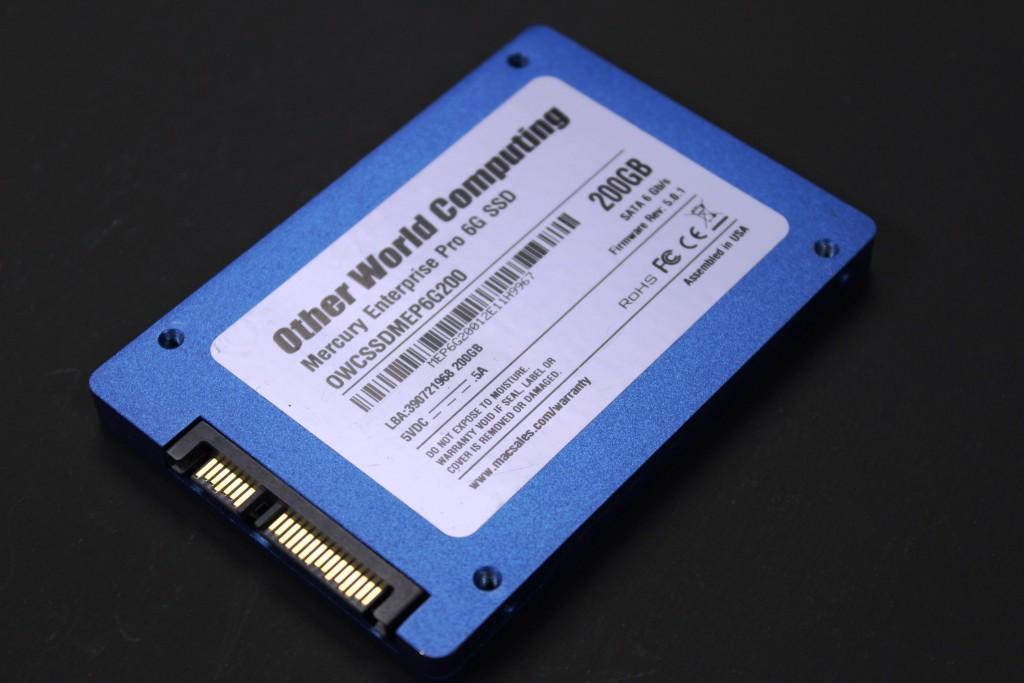CONCLUSION
Having spent hundreds, if not thousands, of hours testing SSDs over the last few years, one thing that we have learned is that performance variability and SSDs seem to go hand in hand. Depending upon fill levels, the state of the Garbage Collection, TRIM implementation, firmware algorithms, and sometimes it seems whatever mood the SSD is in, we will get different results from the same tests. This does not lend itself well to the enterprise model unfortunately.
Performance variability is one of the key challenges of successful integration into the enterprise space. Predictability is absolutely job number one. Servers are loaded with different configurations and workloads are moved and adjusted several times a day in the best managed datacenters. Data traffic is logged, and then workloads are adjusted dynamically to compensate for heavy traffic periods several times a day. Sometimes a single server can be reconfigured and undergo different loadings depending upon the time of day.
Jobs are lost, and won, on who can deliver that sustainable predictable performance.
This makes the message for SSD manufacturers clear; give us sustainable, predictable performance. The highest performance doesn’t always win in this space, especially if that performance sometimes seems to depend upon which direction the wind is blowing. OWC is a relative newcomer to the enterprise space with this Mercury Enterprise Pro 6G, and the onus is upon them to prove that they have the wherewithal to deliver that sustainable performance.
 Our Enterprise Test Protocol consumes roughly 32 hours of semi-automated consecutive loading, and logging, of performance data. Much more data than we are posting here is collected, and as our database grows, new and exciting metrics will be explored in future articles. The key takeaway here is that we aren’t just throwing these on the bench for a few hours and then calling our results good.
Our Enterprise Test Protocol consumes roughly 32 hours of semi-automated consecutive loading, and logging, of performance data. Much more data than we are posting here is collected, and as our database grows, new and exciting metrics will be explored in future articles. The key takeaway here is that we aren’t just throwing these on the bench for a few hours and then calling our results good.
We take a methodical approach that is designed to test the Solid State Storage under the worst scenario possible. Every type of file access conceivable is run repeatedly for hours upon hours to put these devices into various states. In most scenarios, that is where they will operate for their lifetime during use. Enterprise Class SSDs have to deliver. Consumer SSDs simply crumble under this long term write testing, going down to a few MB/s at best after a few hours of repeated beating.
As we were logging results over the course of the testing with the Mercury Enterprise Pro, one key picture began to develop. No matter what we do to this SSD, it seems to continue to deliver sustainable, predictable performance within its drive states. Even with all of the addressable capacity written to, and doing full span random writes for hours, this device just continues to chug away, delivering a consistent level of performance.
This speaks volumes to the firmware implementation and the careful attention that OWC has taken when selecting premium components to build this American Made SSD. Overall, during the course of the testing of this SSD, I just really felt like no matter what I did to it, it would remain solid in its performance. Its almost like we could take it down to the football field, kick a few field goals with it, then bring it back to the test bench and see no difference.
 The only negative aspect of this drive is that there is a bit of a high idle power requirement. Once the device is under load, its power requirements are within range of its competition. Considering that this drive will spend a very small percentage of its lifetime at idle, this isn’t as much of a concern.
The only negative aspect of this drive is that there is a bit of a high idle power requirement. Once the device is under load, its power requirements are within range of its competition. Considering that this drive will spend a very small percentage of its lifetime at idle, this isn’t as much of a concern.
With power protection and other considerations taken to address data security and reliability, this drive has all of the necessary requirements to become a success. Delivering on price is important as well, there are of course other Enterprise class drives that can deliver these levels of performance. Coming in at $499 for 50GB, $649.00 for 100GB, $1,079 for 200GB and $1,779 for 400GB, OWC has gotten the pricing aspect right.
Its just impossible, literally, to match the level of commitment that OWC has shown to their user with this warranty period. Building upon an already stellar customer service reputation is expected, but a 7 Year Warranty is surprisingly good.
Wrap all of that up with a industry leading 7 Year Warranty, and you have a winner!
 The SSD Review The Worlds Dedicated SSD Education and Review Resource |
The SSD Review The Worlds Dedicated SSD Education and Review Resource | 
That is the drive I want on my web server!
We bought 16 of these drives. We have had 12 fail and are working on RMA-ing them. No apologies from OWC. Just saying.